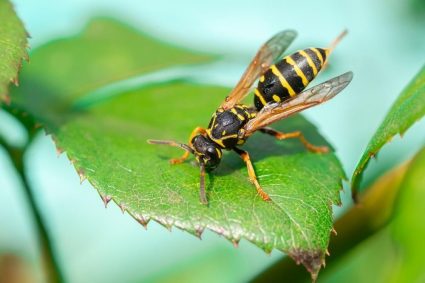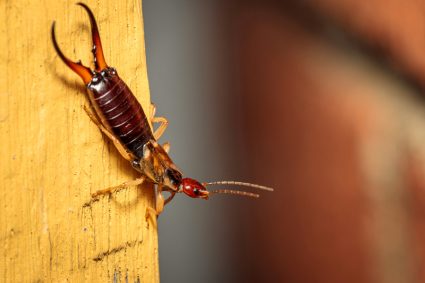
Spraying is a common behavior in tom cats, but it can be a nuisance for cat owners. This in-depth guide will provide you with a comprehensive understanding of why cats spray and how to deter them from doing so, providing practical solutions, examples, and options for every situation.
To deter tom cats from spraying, consider neutering your cat as it can significantly reduce or eliminate the behavior. Also, ensure your cat lives in a comfortable, stress-free environment and clean the areas where your cat has sprayed to discourage future marking. Use natural deterrents like citrus-scented fragrances and provide enough resources like litter boxes, food, water, toys, and scratching posts. Consider using calming diffusers which mimic soothing cat pheromones, making your cat feel calmer and less likely to spray.
Why Do Tom Cats Spray?
Tom cats primarily spray for several reasons:
- Marking Territory: Cats use spraying as a way to communicate with other cats and establish boundaries.
- Stress and Anxiety: Changes in a cat’s routine or environment can lead to stress, triggering spraying as a coping mechanism.
- Attracting Mates: Spraying can be a way for cats to advertise their sexual availability.
- Inadequate Social Structure: When forced to share or deal with confrontations, they may resort to spraying as a way to assert dominance.
- Medical Issues: Some medical issues, such as kidney problems or arthritis, can cause cats to spray or urinate inappropriately.
Identifying the reason behind your cat’s spraying is the first step in addressing the issue.
How To Deter Tom Cats from Spraying?
There are several methods you can employ to deter tom cats from spraying:
- Neutering: Neutering your cat can significantly reduce or eliminate spraying behavior.
- Stress Relief: Make sure your cat has a comfortable and stress-free environment.
- Cleaning Marked Spots: Clean the areas where your cat has sprayed to discourage future marking.
- Use Deterrents: Natural deterrents like citrus-scented fragrances, coffee grounds, or eucalyptus oil can keep cats away from specific areas.
- Providing Resources: Ensure your cat has enough litter boxes, food, and water, as well as toys and scratching posts.
- Use Calming Diffusers: Products like Comfort Zone can mimic soothing cat pheromones, making your cat feel calmer and less likely to spray.
Recommended Products for Deterring Spraying
Several products can help deter tom cats from spraying:
- Nature’s Miracle No More Spraying – Just for Cats: Helps eliminate existing stains and odors.
- Feliway Optimum: Clinically proven product that helps reduce unwanted cat spraying.
- NaturVet Pet Organics No Mark Cat Spray: Deters cats from urine marking on indoor and outdoor surfaces.
- PetSafe SSSCAT Motion-Activated Spray Pet Deterrent: Releases a harmless spray when it detects motion.
- Skout’s Honor Stay Off Deterrent Spray: Can be used on various surfaces to keep cats away.
- Homemade Cat Deterrent Sprays: Create your own deterrent spray using ingredients like vinegar, water, and liquid hand soap.
Environmental Changes to Discourage Spraying
Modifying your cat’s environment can help discourage spraying:
- Clean Previously Marked Areas: Remove the scent to discourage re-marking.
- Provide Multiple Litter Boxes: Especially important if you have more than one cat.
- Maintain a Consistent Routine: Reduces stress in your cat.
- Use Scent Repellents: Citrus peels, lavender oil, or citronella oil can deter cats from certain areas.
- Offer Safe and Secure Environment: Give your cat hiding spots, high perches, and scratching posts.
- Engage in Daily Play: Reduce stress and promote overall well-being.
- Address Health Issues: Consult a vet if spraying persists to rule out health problems.
How Neutering Impacts Spraying
Neutering reduces or eliminates spraying in approximately 85% of male cats by decreasing sex hormones, which motivates spraying behavior. However, around 10% of neutered males and spayed females may still spray.
Cleaning and Removing the Smell of Cat Spray
Cleaning and removing the smell of cat spray can discourage future spraying:
- Act quickly: Blot the spot with a clean towel immediately.
- Use natural cleaners: Warm soapy water or a mixture of alcohol and water.
- Use an enzyme-neutralizing cleaner: These break down the uric acid in cat urine, which causes the smell.
- Use vinegar and water solution: A 1:3 ratio of vinegar to water can help remove the smell of cat urine.
- Use air fresheners and odor eliminators: Products like Febreze can help neutralize lingering odors.
Signs Your Cat Is About To Spray
Look out for these signals:
- Backing up to a vertical surface: Cats usually spray on vertical surfaces.
- Tail quivering: A cat’s tail may quiver or shake when it’s about to spray.
- Standing with raised tail: Cats typically stand with their tail raised while spraying.
- Meowing or yowling: Some cats may vocalize while spraying.
Behavioral Modification Techniques
Training and behavioral modification techniques can deter tom cats from spraying:
- Neutering: Reduces or eliminates spraying behavior.
- Removing Stressors: Identifying and eliminating stressors can help reduce spraying.
- Environmental Modification: Providing multiple litter boxes, separate feeding and drinking areas, and high perches can reduce competition and stress.
- Consistent Behavior from People: Making sure all family members behave predictably and calmly around the cat can help reduce stress.
- Cleaning Marked Areas: Thoroughly cleaning areas previously marked by the cat can help deter them from spraying.
- Pheromone Therapy: Using synthetic pheromone products, such as Feliway, can help create a calming environment and reduce spraying behavior.
- Behavioral Modification: Encouraging your cat to engage in play and providing positive reinforcement for appropriate behavior can help reduce stress and spraying.
Spraying is a natural behavior for cats. By understanding the reasons behind the spraying and taking appropriate steps to address them, you can help reduce or eliminate this behavior in your home. Remember, always consult with a veterinarian if you’re concerned about your cat’s spraying behavior, as it could be a sign of an underlying medical issue.
Frequently Asked Questions
What age should I neuter my tom cat to prevent spraying?
Most vets recommend neutering cats between four and six months of age. However, cats can be neutered at any age, and neutering can still be effective in reducing spraying behavior in older cats.
Can female cats spray as well?
Yes, female cats can also spray, although it’s less common than in males. Spaying can reduce spraying behavior in females.
How long does it take for the spraying behavior to stop after neutering?
It can take up to six months for the hormones to reduce to a level where the cat loses the urge to spray. However, some cats may stop spraying immediately after being neutered.
If my cat continues to spray after neutering, what should I do?
If your cat continues to spray after neutering, it’s recommended to consult with a veterinarian or an animal behaviorist. The spraying could be due to stress, anxiety, or a medical issue.
Are there any side effects to using pheromone products?
Pheromone products are generally safe for cats and humans. However, some cats may have a slight allergic reaction, and humans with asthma or allergies may be affected. Always consult with a vet if you’re unsure.
How can I tell if my cat’s spraying is due to a medical issue?
If your cat is spraying excessively, has blood in their urine, is urinating in unusual places, or is straining to urinate, these could be signs of a medical issue and you should consult with a vet.











